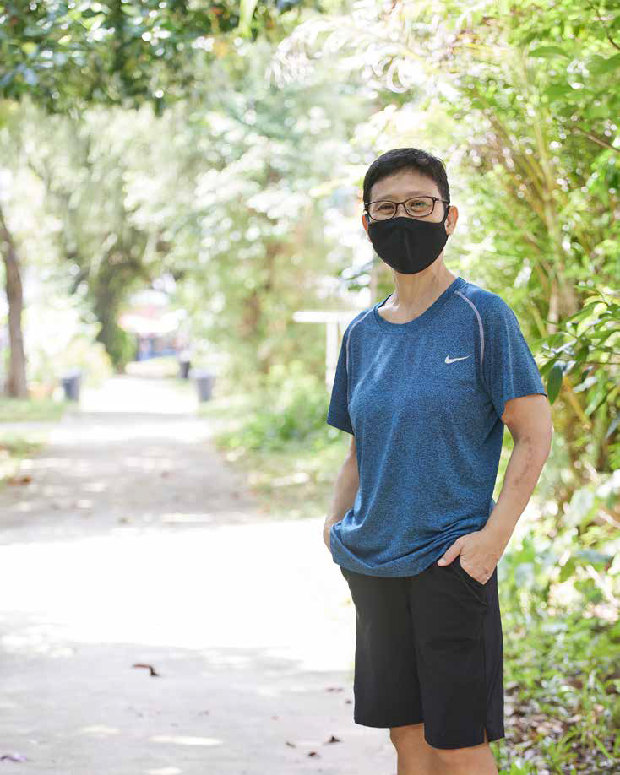
To ensure that organ transplant surgeries can proceed safely, a strict screening protocol detects silent COVID-19 in potential candidates.
After waiting four years for a transplant, kidney failure patient Mdm Alice Ong Bee Ai received a call in April 2020 to rush to Singapore General Hospital (SGH) to receive an organ from a deceased donor.
At the head of the recipient queue, she quickly underwent the usual battery of stringent tests aimed at verifying her suitability and safety — tissue and blood group testing for compatibility with the donor, heart and cancer screening, viral infections, general fitness and health — for the major operation. At the time, the COVID-19 virus had just started its tour around the world, and COVID-19 tests were included.
Mdm Ong tested positive, dashing her hopes of a new lease of life.
“Having COVID-19 does not exclude a patient from a transplant surgery. But if there is an active infection, we want the patient to recover before going ahead with the transplant,” said Dr Jasmine Chung, Consultant, Department of Infectious Diseases, SGH.
Mdm Ong’s viral and lung infections had to be resolved first. In the meantime, she returned to dialysis while waiting for another chance of a transplant. This is important, as patients have to take stronger immunosuppresants right after their transplants to prevent rejection of the donor organ.
“When patients go for their transplant, they are given higher dosages of the medication and the degree of immunosuppressant is more intense. Patients are more vulnerable during this period of time. If they have any form of uncontrolled infection — not just COVID-19 — and their immune system is very weak, they may potentially have more serious complications from the infection,” said Dr Ho Quan Yao, Consultant, Department of Renal Medicine, SGH.
Dr Chung and Dr Ho are part of the multidisciplinary SGH team involved in Mdm Ong’s transplant care. As part of precautionary measures to ensure that transplant surgeries can proceed safely during the pandemic, the SingHealth Duke-NUS Transplant Centre established a rigorous screening protocol to detect cases of silent COVID-19 infection in all transplant candidates.
Testing for COVID-19 is not limited to just the organ transplant recipients. Donors, both living and deceased (certified brain dead), too, undergo COVID-19 testing.
After she recovered, Mdm Ong underwent a transplant in January 2021, becoming the first recovered COVID-19 patient in SGH to receive a life-saving kidney transplant from a deceased donor.
The 52-year old hawker was diagnosed in 2016 with a condition called IgA nephropathy, which left her with just five per cent of her kidney function. To clear her body waste and balance her fluids, she underwent haemodialysis three times a week before her transplant.
Mdm Ong’s quality of life has improved dramatically after the transplant surgery. She no longer needs to spend long hours on dialysis, and is able to spend more time with her family. While on dialysis, she had to restrict the amount of fluids in her diet. She can now drink more water and consume the soups that she loves.
She has resumed exercise and intends to participate in the activities she used to enjoy, such as running a marathon.
“I feel so blessed to be able to receive a donor kidney. I am thankful to the deceased donor, my doctors and SGH for making me feel like I am not alone,” said Mdm Ong.
Get the latest updates about Singapore Health in your mailbox! Click here to subscribe.













 Get it on Google Play
Get it on Google Play